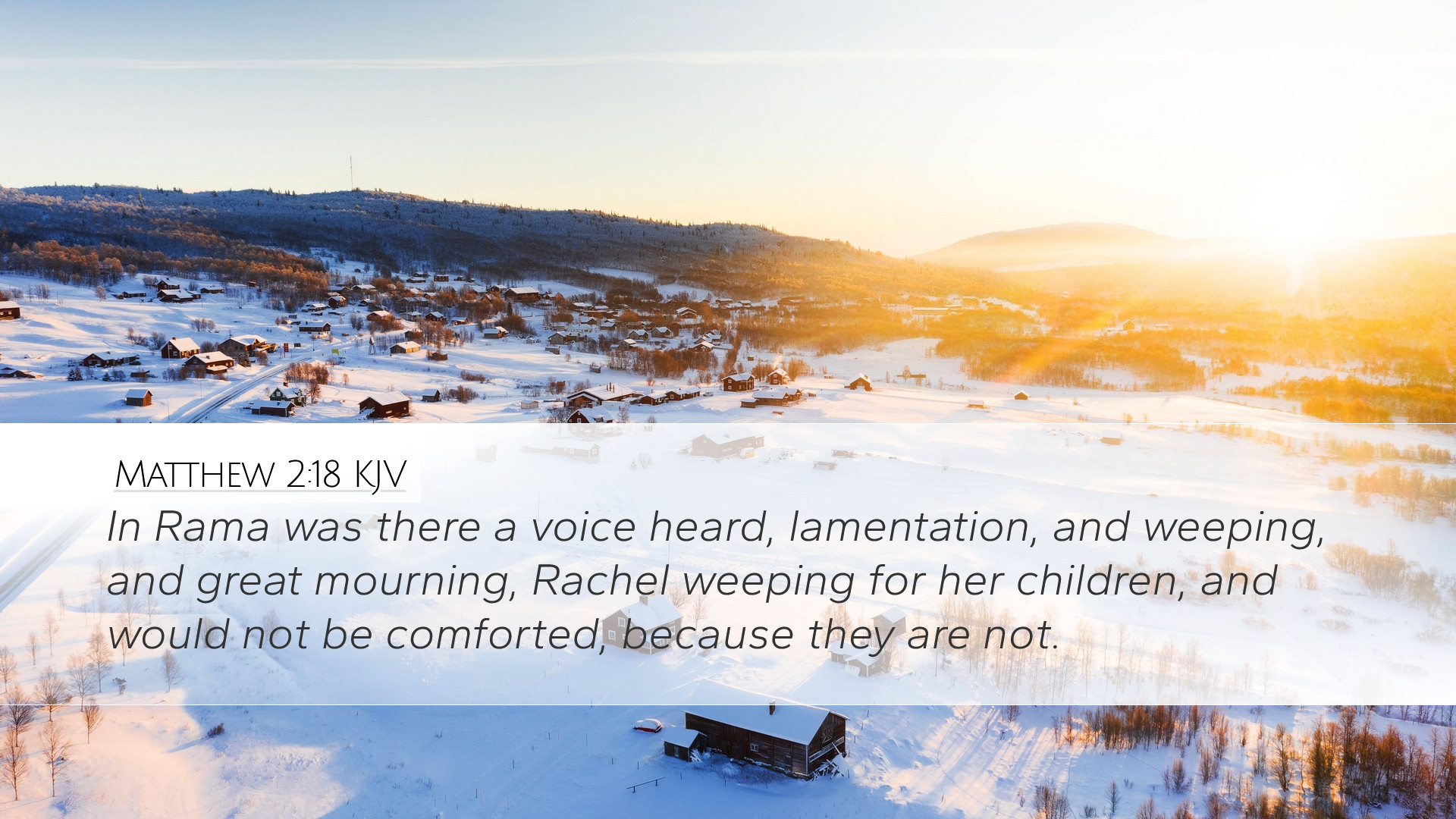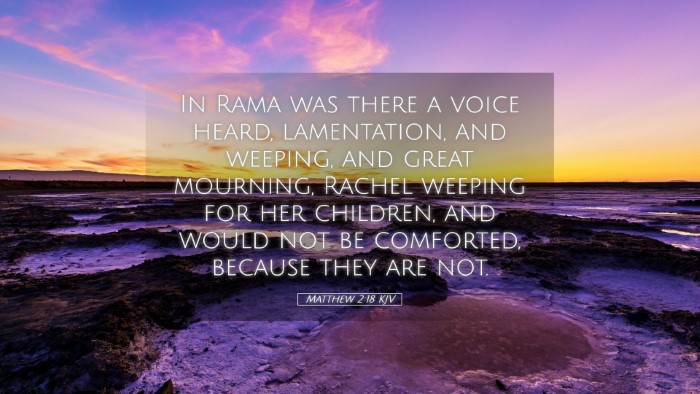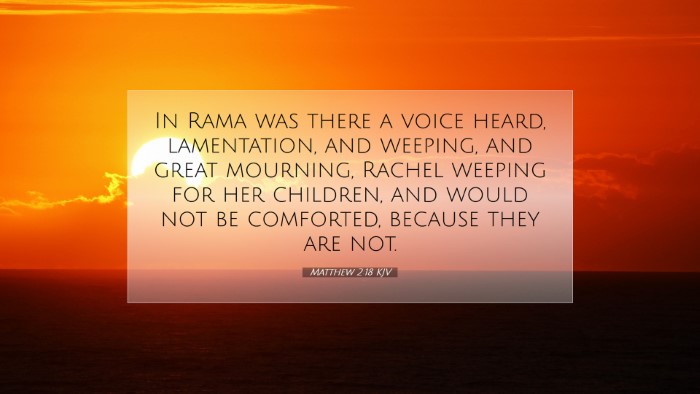Commentary on Matthew 2:18
Matthew 2:18 states: "In Rama was there a voice heard, lamentation, and weeping, and great mourning, Rachel weeping for her children, and would not be comforted, because they are not."
This verse is significant in its historical context and theological implications, drawing attention to one of the darkest passages in Herod’s slaughter of the innocents and its fulfillment of prophetic scripture.
Contextual Background
The prophecy quoted in Matthew 2:18 originates from Jeremiah 31:15, which speaks of Rachel weeping for her children. This passage was initially concerned with the Babylonian exile, where Rachel symbolizes the tribes of Israel, lamenting for those taken into captivity. Matthew applies this understanding to the tragedy of Herod's decree to kill male infants in Bethlehem, illustrating a broader narrative of suffering among God's people.
Matthew Henry's Insights
Matthew Henry emphasizes the sorrow represented by Rachel, portraying her as the figure of a mother who grieves for her lost children, both in the context of Jeremiah’s prophecy and the cruel historical reality post-Bethlehem. He indicates that this reflects a deep emotional and spiritual mourning, stating:
"Rachel had her children in a special sense, being the mother of Joseph and Benjamin, and when she was denied the comfort of seeing them flourish, her held sorrow represents the loss experienced by all Israel."
Henry also identifies an important theological reflection: that God understands and shares in the sufferings of His people. He suggests that even though Rachel's lament is rooted in historical events, it embodies the universal anguish of the loss of young lives throughout history, ultimately reflecting the broader plight of humanity under sin.
Albert Barnes' Analysis
Albert Barnes provides an exegetical exploration of the verse, focusing on the location, "Rama," which he notes as a significant prophetic symbol. Barnes writes:
"Rama, often mentioned in the context of exile, was a place of gathering for those taken captive by Babylon, signifying that the weeping of Rachel was emblematic of a larger sorrow faceted by the oppression faced by Israel."
He explores the notion of comfort in the context of mourning. Barnes argues that Rachel's refusal to be comforted reflects a profound and unresolved grief that highlights the brutality of loss and injustice. This illustrates a timeless human condition – the struggle to find solace amidst overwhelming sorrow.
Adam Clarke's Commentary
Adam Clarke’s commentary offers a scholarly approach to understanding the implications of the text. Clarke discusses the significance of the term "weeping," detailing its connection to the suffering experienced during Absalom’s rebellion and subsequently in the exile:
"The weeping of Rachel depicts a maternal agony that transcends time, linking the past sorrows with present injustice as underlined by the heinous acts of King Herod."
Clarke relates the verse to the overarching theme of prophecy in Matthew's Gospel, emphasizing how this lament serves as a pivotal moment demonstrating the fulfillment of Old Testament prophecy in the New Testament narrative of Christ’s birth and the pains that ensued. He underscores the broader theological insights into God's redemptive plan counteracting human depravity.
Theological Reflections
The sorrow expressed in Matthew 2:18 extends beyond the immediate historical context, indicating themes of suffering, divine judgment, and hope. This lament resonates deeply with pastors and theologians, as it invites reflection on current and historical injustices faced by innocents as a continuous thread in the narrative of redemption.
Practical Applications
- Empathy in Ministry: Pastors are urged to approach their congregations with sensitivity to the pain and suffering that individuals may be experiencing, recognizing the shared humanity in grief and lament.
- Engagement with Suffering: The interpretation of this verse calls students of the Word to engage meaningfully with societal issues, advocating for those who can’t voice their suffering, much like Rachel.
- Hope Amidst Mourning: The reflections from these commentaries serve as a reminder that, even in profound grief, God's redemptive plan unfolds, encouraging all to look forward to fulfillment in Christ.
Conclusion
Matthew 2:18 serves as a profound reminder of the sorrow that accompanies the brokenness of the world, as well as God's overarching purpose amid human suffering. The reflections of Matthew Henry, Albert Barnes, and Adam Clarke illuminate the multi-faceted implications of this verse, offering valuable insights for pastors, theologians, and scholars in their pursuit of understanding the complexities of grief and redemption throughout scripture.


